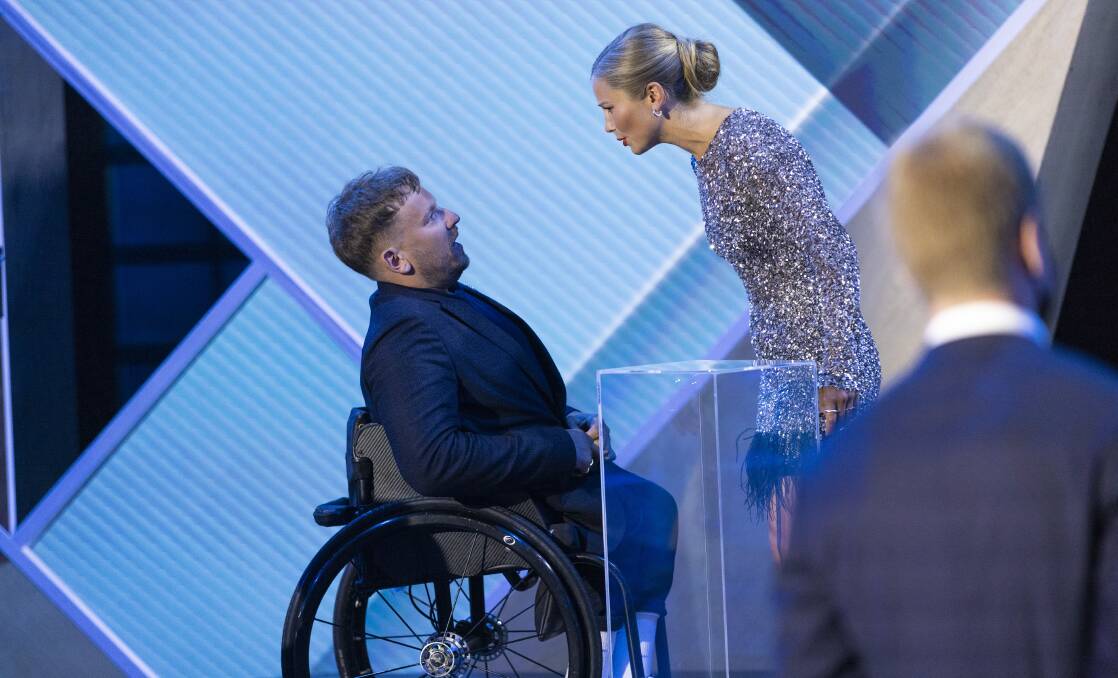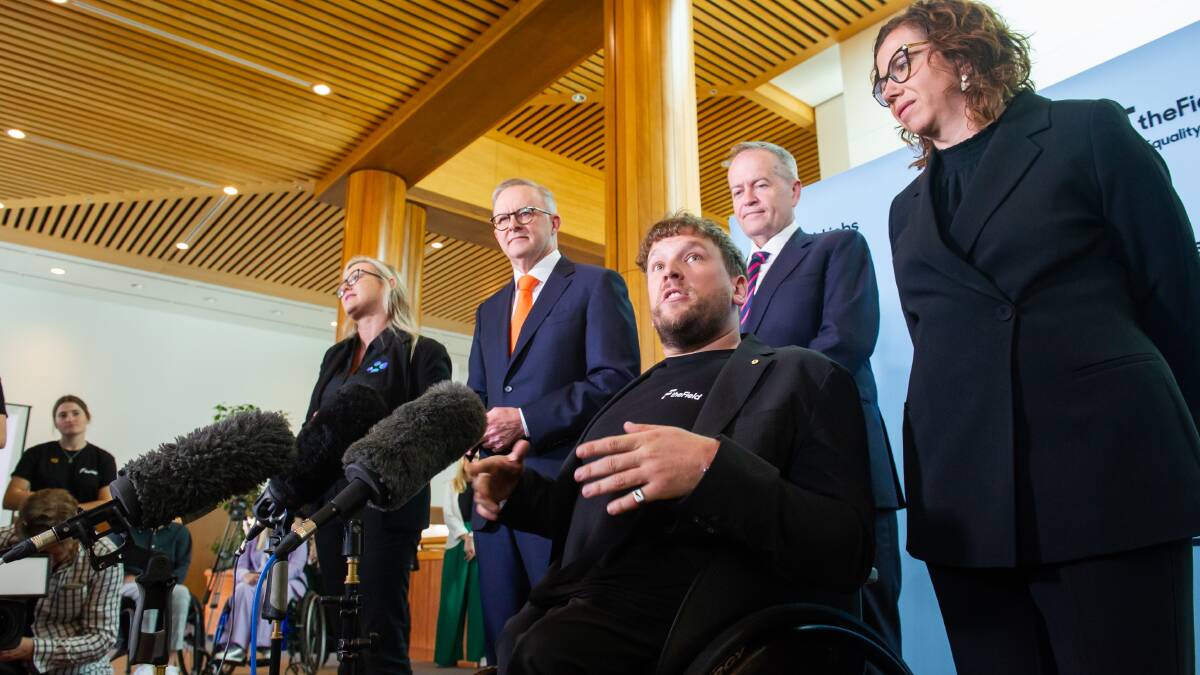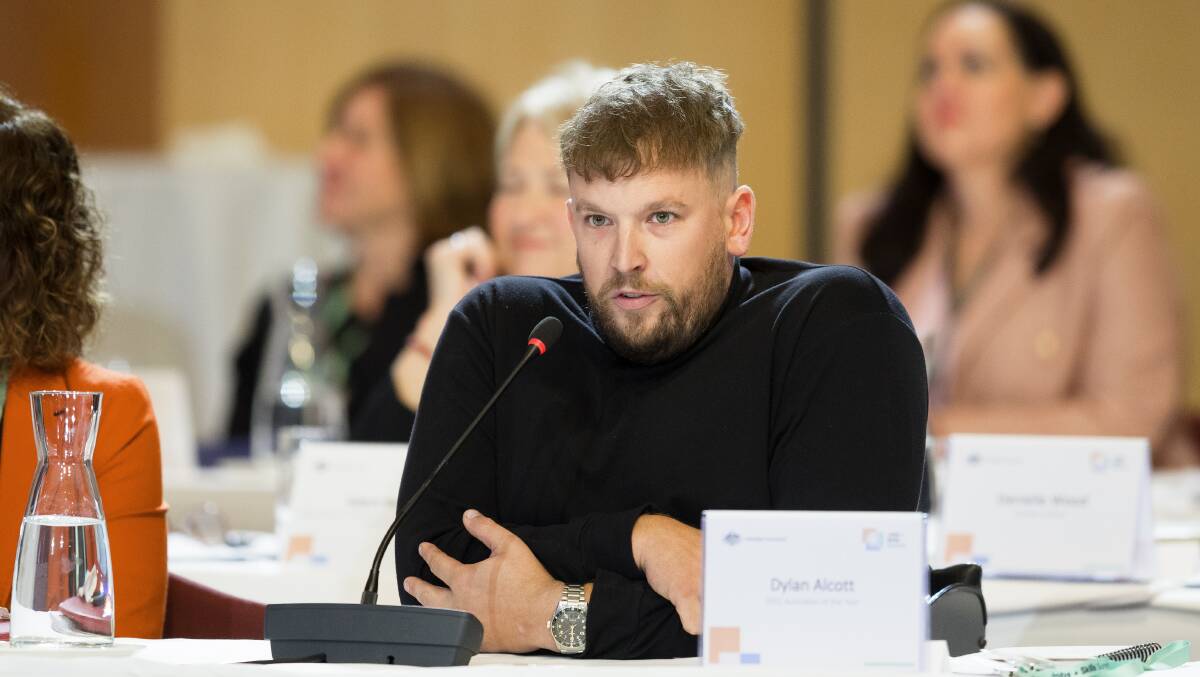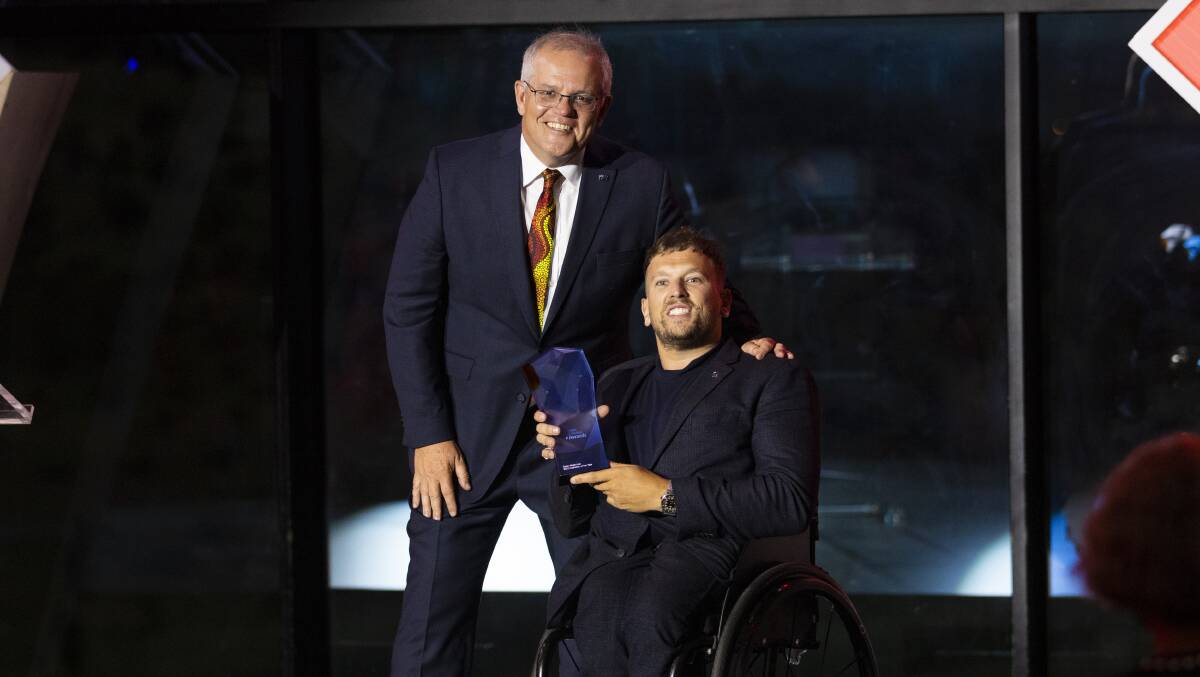Dylan Alcott had an impossible task.
Subscribe now for unlimited access.
or signup to continue reading
His predecessor as Australian of the Year, Grace Tame, made each public appearance during her 12 months in the role an unmissable event.
She was a force of nature who split opinion, meaning she - and her causes - were rarely outside the news cycle.
She was a voice not just for survivors of child sexual abuse, but alongside Brittany Higgins the inspiration for a national reckoning about the treatment of women.
Tame symbolised a moment and embodied a feeling which no doubt contributed to the demise of Scott Morrison's Coalition government.

A tough act to follow indeed.

How should we judge his term?
Every Australian of the Year has a cause and Alcott's was to change how people with a disability are seen in the community.
In his acceptance speech, he urged non-disabled people to "challenge their unconscious biases" and leave their "negative perceptions at the door".
He spoke of wanting to improve job opportunities for disabled people, smiling as he declared: "we're not just ready to work, we're ready to take your jobs, alright?"
It is in the area of disability employment that Alcott devoted much of his time.
Flanked by Prime Minister Anthony Albanese and NDIS Minister Bill Shorten in Parliament House, he helped launch the Field, a website connecting disabled jobseekers to businesses looking to hire.
The unemployment rate for disabled people is double that of non-disabled people and hasn't moved for 28 years.
The Field is an important, overdue initiative.
But almost three months on from that announcement, how of many you reading this article are aware of it?
Alcott shouldn't be blamed for the ignorance of others.

Perhaps press gallery journalists should've given it more coverage when it was launched, rather than using the event to pepper Mr Shorten with questions about NDIS cost blowouts and allegations of participants using taxpayer funds for sex therapists.
That press conference was, however, emblematic of Alcott's 12 months as Australian of the Year.
He was able to use his platform and his affable, engaging personality to thrust disability issues onto the political agenda. But he struggled to keep it there.
The political context helps to explain this.
Morrison might have presented Alcott with the Australian of the Year honour in January 2022, but his government was dumped from office just a few months later.
The Coalition was despised by large sections of the disability community, which breathed a sigh of relief after Labor won the election and Shorten was appointed to the oversee the NDIS he helped design.
Shorten and Alcott are pushing for many of the same things, including on disability employment and a desire to recast the public debate about the NDIS to focus on benefits rather than costs.
Grace Tame attracted so much media attention because she was prepared to call out - and glare at - the Prime Minister and his colleagues.

Alcott hasn't done that because he hasn't needed to.
Having said that, some in the disability community will be upset Alcott hasn't done more to speak up for them as COVID-19 has run rampant.
Others will wonder where he was when startling figures emerged last week showing the prevalence of injury, abuse or unlawful sexual conduct in disability group homes.
There will be some who wished Alcott, the first visibly disabled person to be named Australian of the Year, had simply done more with the platform.
But consider this.
Alcott's cause was as much about challenging people who aren't disabled, as it was about advocating for the roughly 4.5 million people who are.
Has the non-disabled population challenged its "unconscious biases", as he asked it to do this time last year?
Has it left its negative perceptions at the door?















